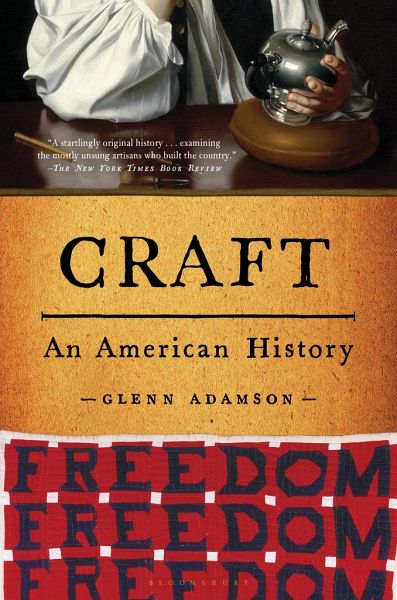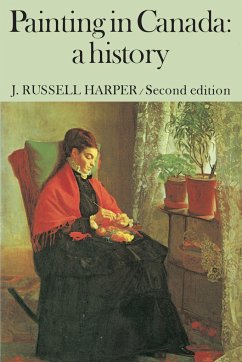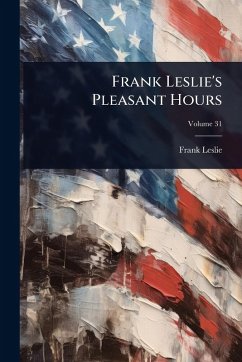
Craft
An American History
Versandkostenfrei!
Versandfertig in über 4 Wochen
15,99 €
inkl. MwSt.
Weitere Ausgaben:

PAYBACK Punkte
8 °P sammeln!
New York Times Book Review Editors' Choice A groundbreaking and endlessly surprising history of how artisans created America, from the nation's origins to the present day. At the center of the United States' economic and social development, according to conventional wisdom, are industry and technology-while craftspeople and handmade objects are relegated to a bygone past. Renowned historian Glenn Adamson turns that narrative on its head in this innovative account, revealing makers' central role in shaping America's identity. Examine any phase of the nation's struggle to define itself, and arti...
New York Times Book Review Editors' Choice A groundbreaking and endlessly surprising history of how artisans created America, from the nation's origins to the present day. At the center of the United States' economic and social development, according to conventional wisdom, are industry and technology-while craftspeople and handmade objects are relegated to a bygone past. Renowned historian Glenn Adamson turns that narrative on its head in this innovative account, revealing makers' central role in shaping America's identity. Examine any phase of the nation's struggle to define itself, and artisans are there-from the silversmith Paul Revere and the revolutionary carpenters and blacksmiths who hurled tea into Boston Harbor, to today's "maker movement." From Mother Jones to Rosie the Riveter. From Betsy Ross to Rosa Parks. From suffrage banners to the AIDS Quilt. Adamson shows that craft has long been implicated in debates around equality, education, and class. Artisanship has often been a site of resistance for oppressed people, such as enslaved African-Americans whose skilled labor might confer hard-won agency under bondage, or the Native American makers who adapted traditional arts into statements of modernity. Theirs are among the array of memorable portraits of Americans both celebrated and unfamiliar in this richly peopled book. As Adamson argues, these artisans' stories speak to our collective striving toward a more perfect union. From the beginning, America had to be-and still remains to be-crafted.














